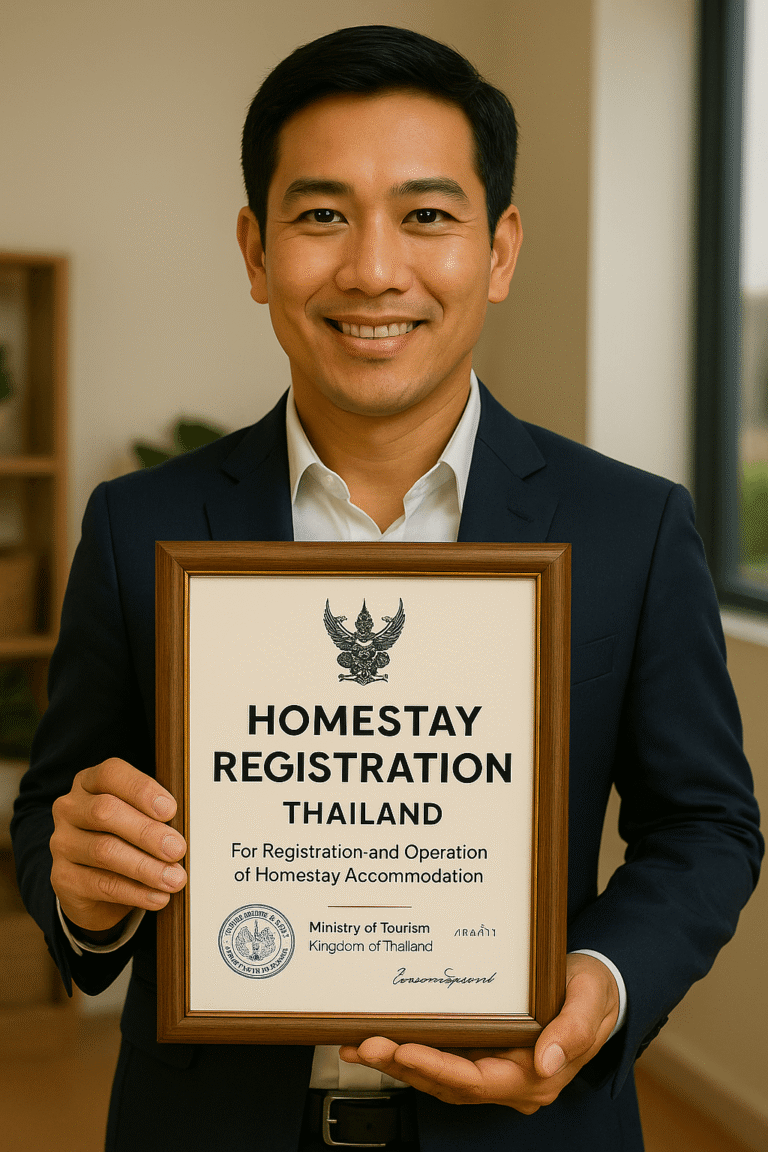To Trust
Planning to run a homestay, guesthouse, or rent out your villa in Thailand?
You must complete an official homestay registration to operate legally and be eligible to list your property on major booking platforms such as Airbnb, Booking.com, and Agoda.
Without registration, you risk fines, forced closures, or being banned from leading accommodation sites.
Homestay registration is typically faster and less demanding than a full hotel license, but it still requires proof of safety, hygiene, and community consent. Most importantly, only registered properties are permitted to advertise and accept guests via international booking platforms. Villas or houses rented out without official registration are considered illegal accommodations, subject to heavy penalties, immediate removal from online listings, and possible legal action.
SiamConsult makes it simple. We help you every step of the way, from gathering the correct documents to securing local approval and collaborating with district officials and the village committee. Our team handles all communications with Thai authorities, ensuring a smooth and stress-free registration process.
Would you like to host guests in a traditional home or a modern villa? See our accounting services in Thailand for small hospitality businesses. Curious about property rules for foreigners? Visit our land ownership and lease registration page.
Pros:
Cons:
Focus on hosting your guests—let us handle the paperwork and compliance, so you can share your Thai home with the world the right way.
Contact SiamConsult—let’s register your homestay or villa for hassle-free, legal hosting.

SiamConsult provides homestay registration support across Krabi, Ao Nang, Koh Lanta, Phi Phi, Phang Nga, and Phuket.
SiamConsult starts with a personal consultation to review your property, discuss your guest accommodation plans, and clarify how your homestay fits into community-based tourism. We explain all Ministry of Interior homestay requirements and eligibility for local tourism support.
Our team checks your property’s location, structure, and compliance with all local zoning and community rules. You receive clear guidance on legal requirements for homestay registration, based on the latest Ministry of Interior guidelines.
SiamConsult assists you in preparing all facility lists, floor plans, sanitation and safety protocols, and (if needed) community participation agreements. We ensure every supporting document is ready for your homestay registration.
We submit your application and supporting documents to the local district or municipal office.
SiamConsult coordinates the paperwork and ensures your application complies with both municipal and Ministry of Interior procedures.
Local authorities will inspect your property for health, safety, hygiene, and guest amenities. Community leaders or tourism officials may also review your homestay’s community participation and cultural fit for tourism programs.
Once approved, your Homestay Registration Certificate is issued. SiamConsult collects your certificate, provides certified copies, and guides you on guest record-keeping, legal requirements, and the annual renewal process.
We support you with ongoing compliance, guest registration, and meeting the standards for Thai tourism. SiamConsult also assists with Tourism Authority of Thailand (TAT) promotion, accounting services in Thailand, and further community tourism registrations if needed.
Ready to welcome guests to your homestay?
Contact SiamConsult for smooth, legal homestay registration and ongoing community tourism support.